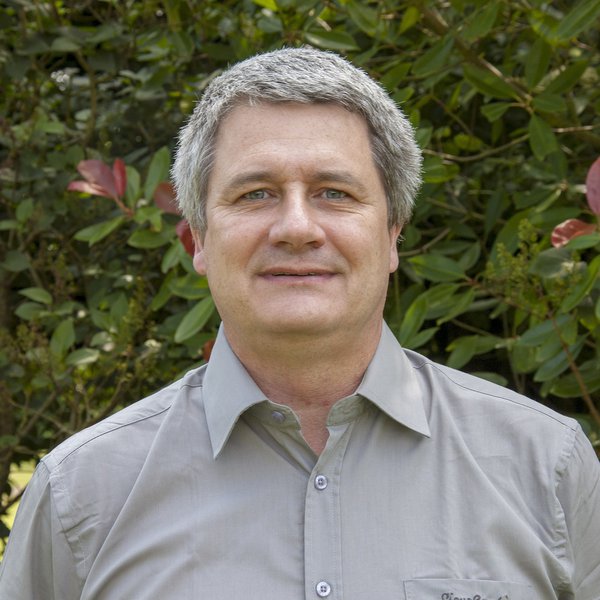Tim Randle
BSc
BSc
Research Scientist
Tim’s track record includes being one of the original developers of forest process models in Forest Research (FR), including the Forest Growth model. Currently, he takes a leading role in translating new scientific evidence and understanding for application in FR models. His main focus is on improving the representation of ecophysiological processes in forest carbon balance models.
He is the main developer of the FR CSORT stand-scale forest carbon accounting model. Tim also applies forest models to provide practical tools and guidance to forestry practitioners, a notable example being the development of the forest carbon sequestration lookup tables that support the Forestry Commission’s Woodland Carbon Code.
Most recently he has been improving the representation of litter and soil carbon processes in the FR CSORT and CARBINE models. Tim has participated in many national and international consortia working on scientific research projects and contracts.
Tim Randle joined Forest Research in 1986 and has more than 30 years of experience of developing mathematical models of forest growth and carbon balance. Tim’s background is strongly interdisciplinary, with a degree in Combined Sciences from the Polytechnic of Wales, specializing in Life Sciences with Mathematics and Statistics. He is one of the leading scientists working on ecophysiological process modelling of forest ecosystems at Forest Research.
Co-Supervisor for PhD student researching into forest soil carbon processes(joint FR and University of Aberdeen)

Forest Research
Alice Holt Lodge
Farnham
Surrey GU10 4LH
UK
This page summarises output from the ‘Modelling and forecasting timber yield and quality in Europe’ (MEFYQUE) project, funded by the EU’s Fifth Framework Programme (FP5).
This report assesses the distribution of the Welsh peatlands, gives an overview of the likely impacts of peat forming factors and afforested peatland restoration, develops national and field based assessment schemes for the assessment of afforested peatland in Wales viable for restoration, carries out a national GIS assessment identifying potential restoration areas in Wales, tests […]
Further development of CSORT model
Developing new version of model with improved representation of early forest growth, tree stumps and roots
Updated version of Woodland Carbon Code (WCC) lookup tables
Developing new version of WCC forest carbon lookup tables with revised estimates of early growth, stumps and roots
Development and testing of improved soil carbon sub-model for inclusion in CSORT and CARBINE forest carbon accounting models
Review of scientific evidence on impacts of forest establishment and management on soil carbon dynamics (in collaboration with the Centre for Ecology and Hydrology, Edinburgh)
Tallis, M. J., Casella, E., Henshall, P. A., Aylott, M. J., Randle, T. J., Morison, J. I. L., & Taylor, G. (2013). Development and evaluation of ForestGrowth-SRC a process-based model for short rotation coppice yield and spatial supply reveals poplar uses water more efficiently than willow. GCB Bioenergy, 5(1), 53–66.
FC and FR publications including official statistics
Randle, T., Matthews, R. and Jenkins, T. (2014). Technical Specification for the Biomass Equations Developed for the 2011 forecast. Forest Research, Farnham
Morison, J., Matthews, R., Miller, G., Perks, M., Randle, T., Vanguelova, E., White, M. and Yamulki, S. (2012). Understanding the carbon and greenhouse gas balance of forests in Britain (PDF-7422K). Forestry Commission Research Report 18. Forestry Commission, Edinburgh. i–vi + 1–149 pp.
Randle, T. and Jenkins, T. (2011). The construction of the lookup tables for estimating changes in carbon stocks in forestry projects. Forest Research, Farnham.
Contract and project reports – excluding any which are commercially confidential
Matthews, R., Sokka, L., Soimakallio, S., Mortimer, N., Rix, M., Schelhaas, M-J., Jenkins, T., Hogan, G., Mackie, E., Morris, A. and Randle, T. (2014). Review of literature on biogenic carbon and life cycle assessment of forest bioenergy. Final Task 1 report, EU DG ENER project ENER/C1/427. ‘ Carbon impacts of biomass consumed in the EU’. Forest Research, Farnham
Matthews, R., Mortimer, N., Mackie, E., Hatto, C., Evans, A., Onesmus, M., Randle, T., Rolls, W., Sayce, M., Tubby, I. (2014). Carbon Impacts of Using Biomass in Bioenergy and Other Sectors: Forests. Forest Research: Final Report for Department of Energy and Climate Change. Forest Research, Farnham